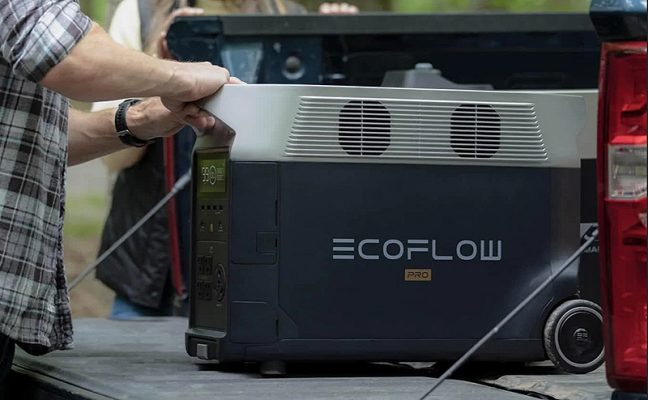Portable Gas Generators vs. Portable Power Stations
Which one should I get?
Portable Gas generators have been a popular energy source for decades. They are the go to source for mobile or emergency energy. More recently, however, advancements in battery technology have made portable power stations, battery powered energy sources, also a good option. Either of these portable devices can be used for powering electrical devices and appliances, when the normal electrical grid power is not available or not wanted.
Understanding Gas Generators
 Gas generators are based on a mechanical device, an engine, to create its energy. Similar to a gas automobile, a gas generator uses its engine to convert fuel into usable energy. The process is: add fuel, start the engine, use the emitted energy. When the fuel is spent or the engine is shut off, the generator will stop giving energy.
Gas generators are based on a mechanical device, an engine, to create its energy. Similar to a gas automobile, a gas generator uses its engine to convert fuel into usable energy. The process is: add fuel, start the engine, use the emitted energy. When the fuel is spent or the engine is shut off, the generator will stop giving energy.
This has been a suitable solution for a long time, and portable gas generators continue to improve.
Portable Power Stations
Portable Power Stations are based on storing energy in a battery. This differs from a gas generator. A gas generator is not designed to store energy, but rather to generate energy when needed. For a portable power station, the energy is stored in its battery, and then “released” when needed. This is similar to an electric vehicle, where there is no engine, but instead makes use of a battery system to power the vehicle.
 The key element for a portable power station is how to put the energy into the battery. Most power stations have multiple methods of charging its battery, including: wall charging, car charging, solar, and EV station charging. For a gas generator, gas or diesel fuel is used to generate the needed energy.
The key element for a portable power station is how to put the energy into the battery. Most power stations have multiple methods of charging its battery, including: wall charging, car charging, solar, and EV station charging. For a gas generator, gas or diesel fuel is used to generate the needed energy.
When you add solar panels to a portable power station, it then becomes more like a power station generator, meaning that it can now also generate electricity, used to recharge its battery. The EcoFlow Delta Pro is a good example of a portable power station with these capabilities.
Pros and Cons
Gas Generator Benefits:
-
- Highest output capacity. Size would increase, but this makes good option for larger power needs.
- Lower initial purchase cost
Gas Generator Cons:
-
- Carbon Monoxide emissions (from engine, thus must be located outdoors and in well vented area.)
- Makes noise (therefore may not be best option for all situations)
- User must handle combustible fuels
- Fire hazard. Burn hazard.
- Engine must be running to provide power
- Cost per kilowatt provided higher (taking into account fuel cost, engine maintenance, etc.)
- Some not suitable for powering sensitive devices (cell phones, laptops, etc.)
- Fuel availability (during an emergency, can be difficult to purchase more fuel.)
_________
Power Station Benefits:
-
- Can be used indoors (convenient)
- Quiet operation
- No engine, thus no high heat parts
- No emissions, thus no carbon monoxide concerns
- Solar charging capability (free energy)
- No need to handle combustible fuel
- Do not need to winterize for outdoor use
- Do not need extension cords, as can be used indoors
Power Station Cons:
-
- Higher initial purchase cost
Summary
Both portable gas generators and portable power stations are very useful alternate sources of energy. Over time, we as a society have become more reliant on our electrical devices. They make our lives easier. Unfortunately, sometimes the electrical grid is just not available. Other times we just want to venture out where there is no electrical grid, but would like to bring some of our modern devices with us.
With innovations in energy technology, we are seeing tremendous advances in what is available to us. Battery systems are becoming more efficient, powerful, and lightweight. Portable power stations, undoubtedly, are the future of mobile energy and are worth researching.

